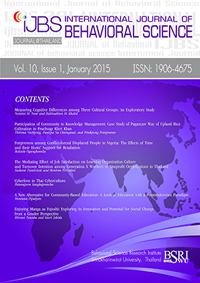A New Alternative for Community-Based Education: A Look at Education with a Postmodernism Paradigm
Main Article Content
Abstract
This article analyzes 1) the recognized educational ideologies, practices and effects on
community life in Thai society, 2) the conditions leading to reviews and questions over
the educational paradigm, and 3) reveals a new alternative for community-based
education in Thai society, through a postmodernism paradigm. The results of the study
revealed that formal education has been controlled by the ideology of country
development for the growth of economic and industrial systems. Educated people are
designated to have an industrial worldview to serve the labor market needs while
knowledge that serves community life is seen to have no value and pushed to the
periphery making modernism knowledge from outside society necessary. The crises of
education that serves the economic system reflect various problems. Reviews and
questions over education are thus, posed by thinkers, academics and people with
questions of who education serves and who gain or lose in the education system. The
government sector has proposed and set rules to solve the problems but it has been
technical rather than changing the frame of thought. Nevertheless, a proposed new
alternative for community-based education can no longer look at education with the
perspective that implies dependence but rather question education, and look at education
with a postmodernism paradigm. This may help solve problems in three ways: to
understand the myths about education and modern academic knowledge; to question
education and modern academic knowledge and to change to a paradigm and knowledge
that comprises education that serves people’s lives, self-sufficiency, educational
intelligence, creates knowledge and education for life.


